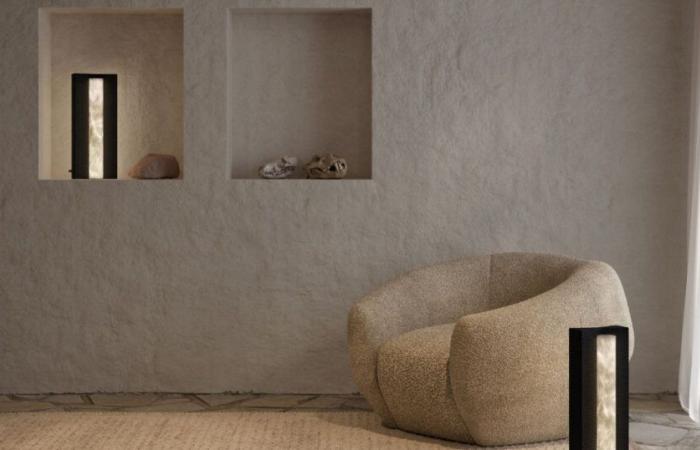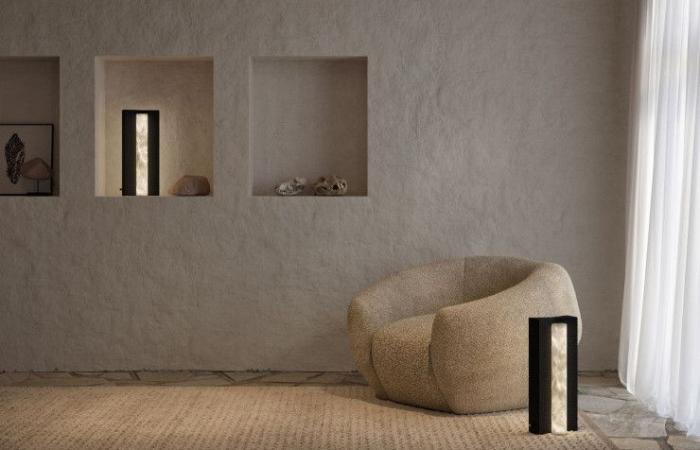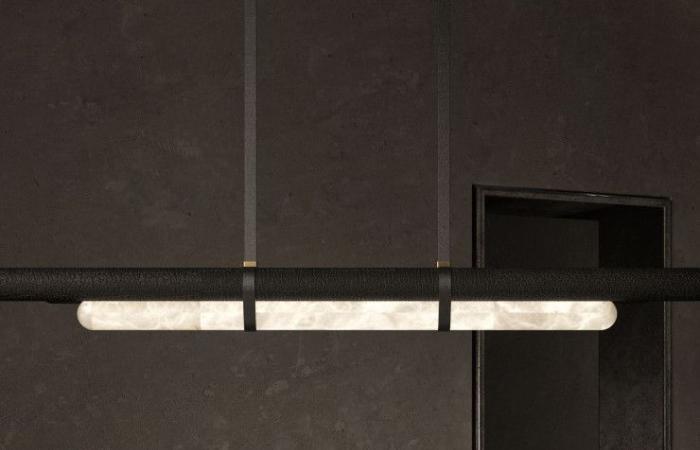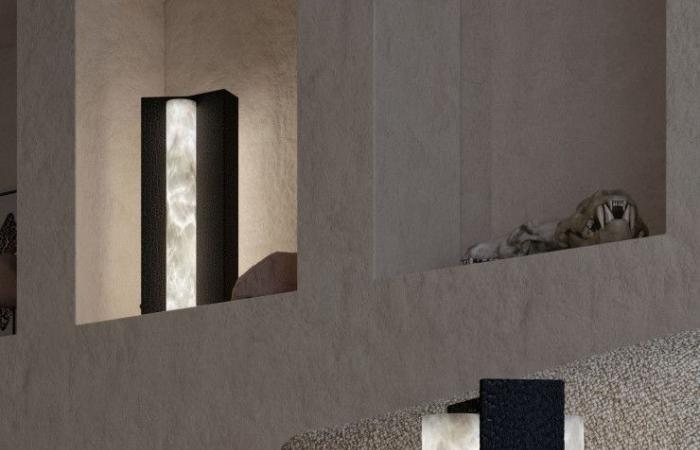For its “Incandescence” collection, Atelier Alain Ellouz, creator of alabaster and rock crystal lighting, has joined forces with the design studio Danneels + Zafiro, which works with burnt wood. Alain Ellouz, founder of the brand, talks about this collaboration.
Also read: 12 celestial luminaries under the stars
IDEAT: How was this partnership with the Danneels + Zafiro workshops born?
Alain Ellouz: I have been increasing my collaborations over the past three years in the artistic sector through the Alain Ellouz Foundation for Alabaster. This made me want to open up to a similar exchange around design.
For Alain Ellouz, the “Incandescence” lighting collection, designed with the Danneels + Zafiro workshop, which combines alabaster and burnt wood, evokes both power and lightness. DR
I met Hugo Danneels and Julie Figueroa Zafiro, from the Danneels + Zafiro workshop, when I was a judge in a competition. I loved their work on burnt wood boxes. A few months later, I asked them to work with me on a project combining alabaster and burned wood.
IDEAT: What is special about burned wood?
Alain Ellouz: It is a technique used in Japan (called shou sugi ban) for the construction of house exteriors. It allows the wooden planks to be petrified, which become very resistant.
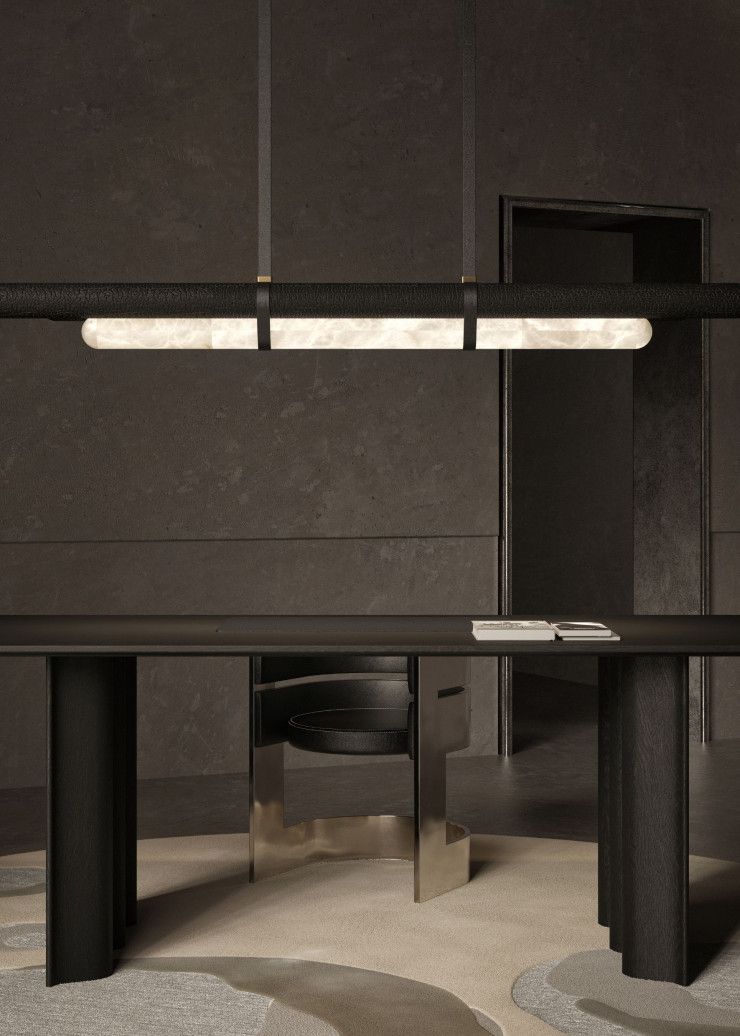

The sculptural Odyssée pendant light, available in two widths, 120 or 180 cm. DR
I did some research, and in the world of design, there are few major pieces that showcase this know-how. However, it is our DNA to take paths that do not exist, on which we must carry out real exploration.
IDEAT: What about alabaster, your favorite material?
Alain Ellouz: It is an extremely fragile stone, which is scratched very easily. But we have found transformation processes, chemical or physical, which make it as hard as granite and impermeable as glass. All of these treatments are invisible to the naked eye.
IDEAT: Everything seems to oppose them…
Alain Ellouz: Burnt wood embodies fire, alabaster, composed of minerals, evokes water. With “Incandescence”, we feel both power and lightness. A subtle play develops between the two materials.
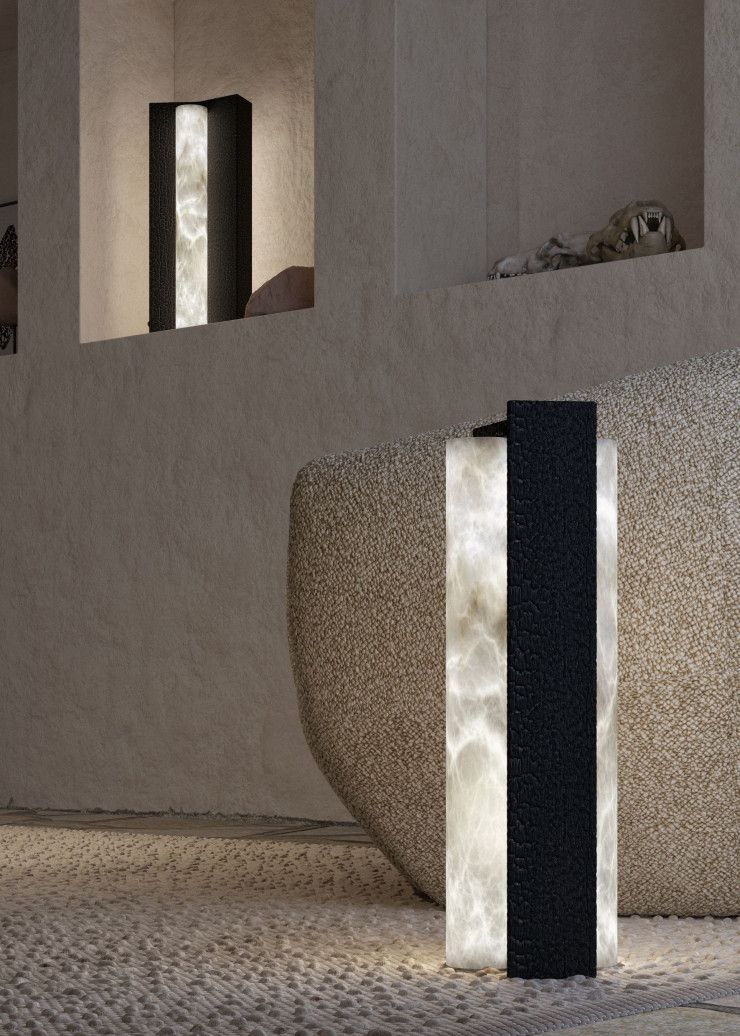

The Vulcain table lamp (L 21.5 cm x H 52.5 cm x D 16.5 cm). DR
We started by working on modest pieces, then more sculptural, like the Odyssée or Terra pendant lights – initially a floor lamp. It’s a very nice collaboration.
Also read: Roger Pradier lighting fixtures on the path to responsibility

